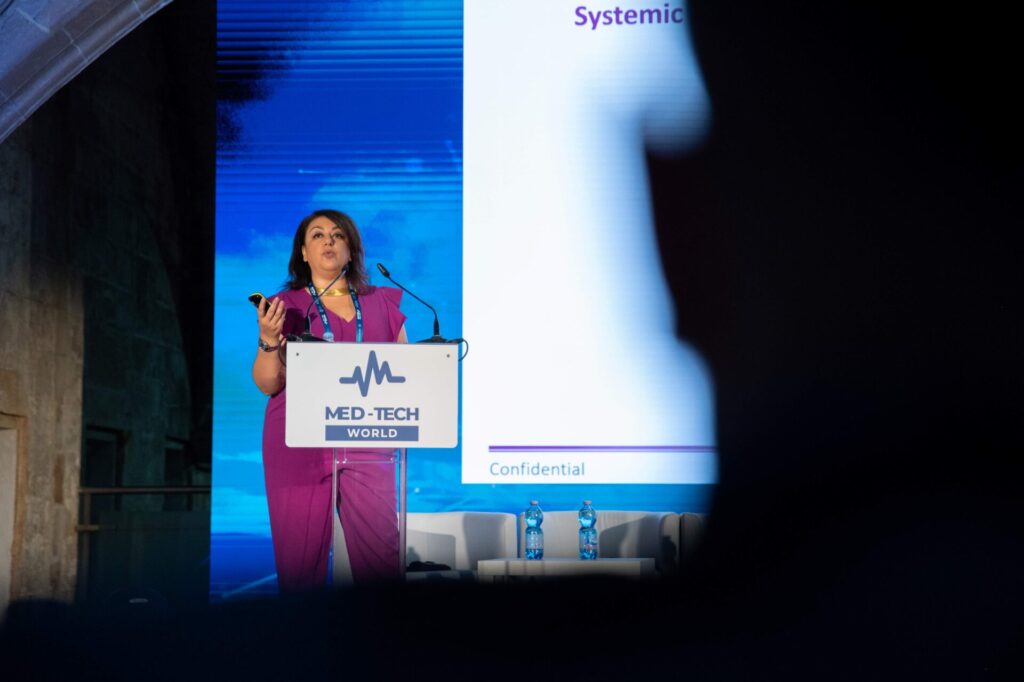
Michael Joe Cini
9th May 2023
AI discovered – Landmark schizophrenia treatment
PsychoGenics are on the verge of developing a historic world first, AI discovered drug. This breakthrough comes in the midst of a veritable AI revolution, with the landmark development known as Ulotaront aiming to treat schizophrenia.
In a televised interview, CEO and President of PsychoGenics, Emer Leahy detailed how her organisation went from a miniscule entity founded by scientists from Yale University’s department of Psychiatry in 1999, to the company on the cusp of this monumental achievement.
In 2002, as a team of only 8, PsychoGenics took an advanced approach to discovering new drugs based on its previous expertise and seasoned experience in the behavioural testing of rodents. Pulling on her 30 years in the pharma and biotech fields, Leahy encouraged her team to “industrialise” this method.
Leahy commented on her intentions:
It was the peak of the genomic revolution, everybody was chasing targets and genes — and essentially what I was saying was, ‘Let’s not do that. Let’s use behaviour, the output of the brain, to drive the discovery efforts, and let’s look for patterns in behaviour, that will allow us to predict new treatments.’

The team brought their innovative ideas to Carnegie Mellon University, Pennsylvania, in search of support in the form of high-tech tools to develop their first platform, which would become known as SmartCube.
An innovative platform that combines robotics, computer vision and AI within a box-shaped mechanism. By presenting its subjects, being drugged mice, with a series of challenges to influence their behaviour, Leahy explains they can collect millions of data points which are then processed at a pace and efficiency that has only become a possibility with the massive strides made recently by machine learning and AI.
These data points are condensed down into a few “behavioural features” which they extract a drug signature from. The innovation doesn’t stop there as Leahy describes the “reference database” PsychoGenics has built using a varied plethora of multiple compounds which include such items as antidepressants and anxiolytics in order to compare the new discovery which they are testing.
Subsequently, SmartCube has successfully brought numerous treatments to clinical trials using this specified method, with the the drug in question, Ulotaront, being its most notable achievement. Now being developed by Sunovian Pharmaceuticals, the drug is in phase 3 trials, under observation for “efficacy and monitoring of adverse reactions,” according to the FDA.
The utility of Ulotaront cannot be underestimated, as Leahy explains, all the compound’s antidepressant counterparts currently available on the market work by targeting D2 dopamine receptors. There is not any variety of alternative to this approach and has not been for about 60 years. Therefore in many ways, Ulotaront is unique in that it is potent in treating schizophrenia without targeting the D2 dopamine receptor.
One of the reasons Leahy feels finding an alternative to targeting the D2 receptor is of vital importance is that roughly ⅓ of patients do not respond when it is targeted. She stated that:
These existing treatments have minimal impact on what’s called the ‘negative symptoms’ of schizophrenia … the apathy, the social withdrawal, the flat affects. They’re addressing ‘positive symptoms’ — the hearing of voices, the psychosis — but not the ‘negative symptoms,’ which are very disabling.
Another issue with the offering currently on the market, is the presence of side effects which can often lead to relapse. Such a consequential factor that many patients refuse a good amount of these treatments.
In trying to find an elucidatory alternative to these, Leahy claims that through their method they were left with a handful of compounds that could have been a solution. Predicting that Ulotaront will be safer and more effective on the negative symptoms of schizophrenia.
According to Leahy, 2 extremely successful trials have been conducted improving almost all aspects of schizophrenic symptoms, with PsychoGenics confident Ulotaront will be on the market by 2024.
The explosive nature of AI’s recent advancements, the possibilities and applications are endless, from new discoveries such as this, to the integration of it into numerous aspects of daily life. The enormous potential is most certainly not lost on Leahy who believes there is an opportunity for exponential growth and improvement, particularly but not limited to, the healthcare and mental health space.






